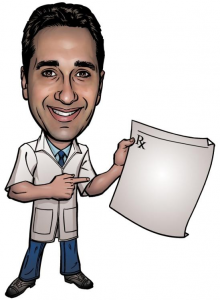_name.png)
This week’s title is a shameless crib from the new and popular Netflix series “Stranger Things.” The content of this article is not really about paranormal happenings. As a matter of fact, it’s about reality, about things we can explain. They are biases and misconceptions we all have and how wrong we are.
I grew up in Hongkong in the 1950s, 60s and early 70s. It was in general a nice, well-controlled British colony. (It’s part of China now.) Young British adults — the white ones – came from England and became mid-level government bureaucrats, or at worst as inspectors in the police force. I had yet to find a rank and file policeman who was Anglo-Saxon in the nineteen years I was there. (If you knew of one, let me know and tell me I am wrong.) On the other hand, if you were from India, a former British colony, you were lucky if you found a job as a doorman or a security guard. It was not only the British colonizers who looked at the Indians unequally. The local Chinese people seemed to have picked up that unsavory attitude as well. I was raised with that piece of undisputed “truism” – i.e., the lighter your skin pigmentation was, the smarter you were. Since a typical Chinese person is darker than a Caucasian Englishman, but lighter than most Indians, our hierarchy in society “must” be in the middle.
 Fast forward forty-some years to 2014. I had an almost fatal disease called aortic aneurysm. An extremely skillful vascular surgeon, with a team or about ten people, including other doctors, nurses and assistants, brought me back to life. I was in and out of consciousness for over twenty days in a hospital called St. Joseph’s in Stockton, California. When I became stable after they drew a perfectly straight eight-inch line on my chest with an electric saw, I was transferred to another hospital called Kaiser Permanente in San Francisco, my regular self insured hospital. In the US, we call such entities HMOs, short for health maintenance organizations.
Fast forward forty-some years to 2014. I had an almost fatal disease called aortic aneurysm. An extremely skillful vascular surgeon, with a team or about ten people, including other doctors, nurses and assistants, brought me back to life. I was in and out of consciousness for over twenty days in a hospital called St. Joseph’s in Stockton, California. When I became stable after they drew a perfectly straight eight-inch line on my chest with an electric saw, I was transferred to another hospital called Kaiser Permanente in San Francisco, my regular self insured hospital. In the US, we call such entities HMOs, short for health maintenance organizations.
The identity of the lead doctor who saved my life escaped my memory. He must have talked to me many times at St. Joseph’s. I just couldn’t remember who he was. According to my family, after he spent ten hours on my operation, he came out and talked to them, in a very tired but pleasant and reassuring manner. I had always wanted to thank him. I just couldn’t remember his name, although one of my sisters kept calling him the “nice Indian doctor.”
A few days ago my son Brandon found the doctor’s business card in his home. His name is Amod Tendulkar. After almost two full years his identity finally surfaced. Brandon had often chastised me for not tracking down the person who saved me. So he took it upon himself to do it. Thank you, son!
 The next morning after Brandon sent me a picture of Dr. Tendulkar’s business card on my cell phone, I called his office. They told me he wasn’t there and he didn’t give out his e-mail address to patients. After I hung up, I wrote him a thank-you letter by snail mail. I hope he gets it.
The next morning after Brandon sent me a picture of Dr. Tendulkar’s business card on my cell phone, I called his office. They told me he wasn’t there and he didn’t give out his e-mail address to patients. After I hung up, I wrote him a thank-you letter by snail mail. I hope he gets it.
So that’s my closure on the aneurysm saga. Here’s a suggestion to all the Hongkong people — family members and friends included — who used to or continue to call people of Indian descent 阿差,which roughly means “different and lowly”: Don’t be so quick to call someone you don’t know a disparaging name. Stranger things have happened; your life may later depend on them.
*** The End ***
(The dissemination of this writing is for non-commercial enjoyment only. The author reserves the copyright for himself)
Note: Click here to continue browsing other writings and works of Camillus Chan within this site